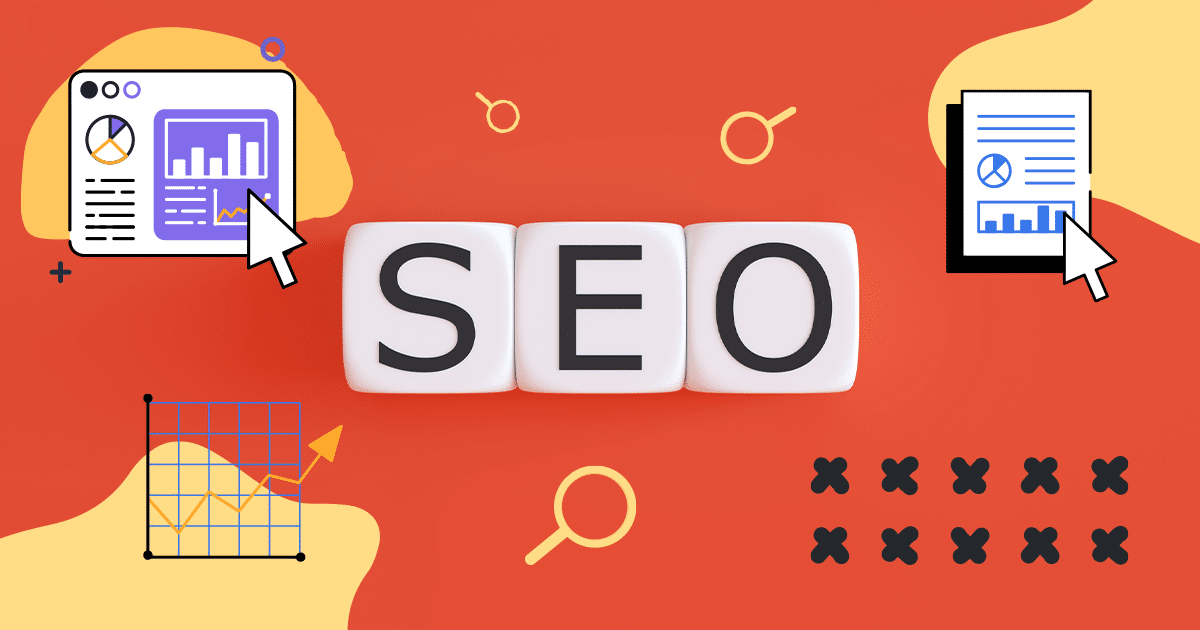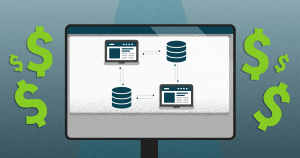In order to sell a product or service to the public, it is necessary to find the ideal sales channels.
This is part of the companies’ strategy, and the more accurate the choices are, the more successful the business will be.
Currently, several options tend to perform well, and these channels are both online and offline.
The choice depends, first of all, on an in-depth understanding of the buyer personas. Learning more about their characteristics helps the company determine at which point of contact to direct its sales actions.
From this, the company can even combine several channels, which enhances its market performance.
Doing this is not complicated, and in this content, you will learn more about the 10 main sales channels to develop a strategy!
Download this post by entering your email below
The Offline Sales Channels
Offline channels are the traditional means companies use to make sales.
Although they are not quite modern today, as we live in the age of digital transformation, many of them are extremely important and have not ceased to be effective.
Below, check out the offline options, which bring the first channels on our list!
1. Distributors
Distributors are vital sales channels that are still relevant today.
We are talking about a business model that aims at taking products from different companies to the market in a broader way.
This operation may involve retail, wholesale, or direct distribution to consumers or stores.
In this market segment, we can see the distributor as an intermediary between the company of origin, that is, the producer, and the consumer.
Their job is always to sell a third party’s product, using their logistics and market reach to expand the performance of the brands they regularly work with.
The distributor can place merchandise in strategic, qualified resellers, and is usually sought out by a company that wants to reach more customers.
2. Franchises
Franchising is one of the most successful sales channel models in the world.
It becomes an alternative when the company is already:
- Established in the market.
- Has a solid customer base.
- Has excellent growth prospects.
In this case, the owner allows the brand extension by third parties.
The franchisee is the one who decides to open their own branch, where they will be the business owner.
This helps the brand to develop, gain more visibility, and, most importantly, become an authority.
To do this, the franchisee needs to acquire the right to own a unit of that business.
For this person, opening a store that is already consolidated in the market is an excellent way of starting a venture.
There’s no need to start a business from scratch, and you can have a new unit in a given physical location, following the brand’s guidelines and standards.
3. Own store
For a long time, when the internet was not an actual possibility for sales, owning a store was the primary dream of future entrepreneurs.
The physical space is an excellent way to win the client, bringing them closer.
There, they can enjoy a differentiated experience, getting closer to the purchase.
Even with technological advances, having your own physical store is still a great strategy for companies, as long as they know how to manage this space.
Today, companies must redouble their efforts to develop an interesting physical store.
After all, leaving home to make a purchase is an increasingly less popular alternative among consumers.
For the own store to be a relevant sales channel, it is necessary to involve the audience.
The search for competitive differentials is important to create a unique and worthwhile experience for the consumer.
4. Telemarketing
For a long time, especially when online sales were not a reality, telemarketing (or telesales) was very important.
The calls, whether passive or active, were one of the alternative sales channels to physical stores. The changes in the world, however, have weakened this model somewhat.
➜ Today, active calls by companies are no longer perceived as attractive to the consumer.
Therefore, they must now take a less invasive and more convincing approach. Calls are being left aside little by little since they take up a significant amount of time.
It is up to the companies to understand a little more about their public and see how they accept this sales channel.
Currently, passive telesales is perhaps the best alternative to contact clients and potential customers.
The Online Sales Channels
The online medium is the present and the future of transactions, which is reflected in the way sales are conducted today.
For companies, it is essential to have digital channels that allow greater exposure of products and services, reaching the public wherever they are.
Check out more channel options, all online, below!
5. E-commerce
E-commerce is nothing more than a digital store selling its products or services to several people on the web.
Today, it is essential for companies to maintain sales channels on the Internet, and having your own store is very important.
Global e-commerce sales are expected to reach $4.2 trillion in 2021, with U.S. consumers accounting for 25% of that spending.
Put simply, a specific brand can expose its services and products on a website that consumers visit and in which they make purchases directly.
All this takes place in a secure environment, where payment methods are varied, and the whole process is an invitation to purchase.
This is why e-commerce is gaining so much space. Nowadays, there are hardly a few brands that do not have their audience on the internet.
Having a direct sales channel online enables your brand to offer the consumer:
- Convenience.
- Accessibility.
- Speed.
It also encourages brand engagement.
6. Marketplace
The marketplace is another type of online sales that is growing more and more every day.
We are talking about large online shopping malls that bring together products from different brands, acting as an intermediary between consumer and company.
The main factor of the marketplace is its reach.
It is not always valuable for a particular brand to have its own website and operate it, especially when it comes to visibility.
Opting for the marketplace ensures that more people will see your product since it will be exposed in large sales channels.
Above all, this is a strategic decision.
The marketplace’s role is only to expose these products, making a bridge between those who sell and those who want to buy.
Some platforms redirect consumers to the store’s e-commerce.
In contrast, others complete the purchase and notify the company that owns the product about the order, leaving the shipping process to them.
7. Social Media
Being on social media is of great importance, something almost mandatory for brands these days.
All major companies are there in pursuit of:
- Exposure for their business.
- Communication with the client.
- Creation of a “personality” for the brand.
- Marketing actions.
- And, especially, product sales.
Today, social networks have direct integration with other channels, such as online stores.
More than simply advertising a product, platforms like Facebook and Instagram already have direct purchasing tools.
By clicking on these links, the consumer is redirected to the product’s checkout page. In practice, using social media as a sales channel is a fast, direct way to drive the consumer to conversion.
This makes the process easier for them and generates a parallel flow of people willing to buy.
8. Affiliate program
With so many opportunities to sell online, the quest to further extend the reach of products is a constant goal for companies.
The affiliate program makes this possible through agents who take these products to more people, acting as genuine online sellers.
In this channel, affiliates are the people who will distribute sales links for the company’s various products, thus advertising for the brand.
This contributes to taking good opportunities to a wider audience in an objective way.
It is a simple arrangement: every sale made through the affiliate link generates a commission.
For companies, this amount paid becomes interesting in the context of a business relationship since, depending on the affiliate’s level of influence, they can generate many other sales.
It is a smart way of doing business in the digital age.
9. Google Ads
Google Ads is an advertising tool that allows products to be included in various web advertising strategies.
The proposal is, firstly, to increase these products’ reach by taking them to more people.
In addition, the way in which this exposure is made tends to generate many conversions.
In Google Ads, there are two categories of ads: the Display Network and the Search Network.
➜ The first advertises these products within banners and carousels strategically placed on popular web pages. Thus, a company has its items displayed in major sites that relate to its public’s segmentation.
➜ On the other hand, the Search Network allows your site’s products to appear on the first Google search results. If you sell running shoes and someone performs a search using related terms, Google will likely highlight your product as one of the main options.
10. Email marketing
Email marketing is an essential digital strategy and works as a very effective sales channel.
Companies communicate through different approach cycles with potential consumers, educating and leading them until they become customers.
This is how email marketing generates conversions.
After users are ready, understand the product, and have decided to buy, the emails start to take a more direct approach.
In practice, people receive messages in which they are directed to close a deal or purchase an item — all that at the right time and without skipping steps.
By making this gradual communication, respecting each person’s context, email marketing becomes an important strategy to generate conversions for companies.
Taking advantage of several sales channels can make your company gain reach and have good results from several sources.
So get to know your audience and persona well to define where you are going to offer your solutions.
As you have seen, social networks are among the most important channels a company can use. How about learning more about them?
In this post, we explain in which social media your company should be present!









